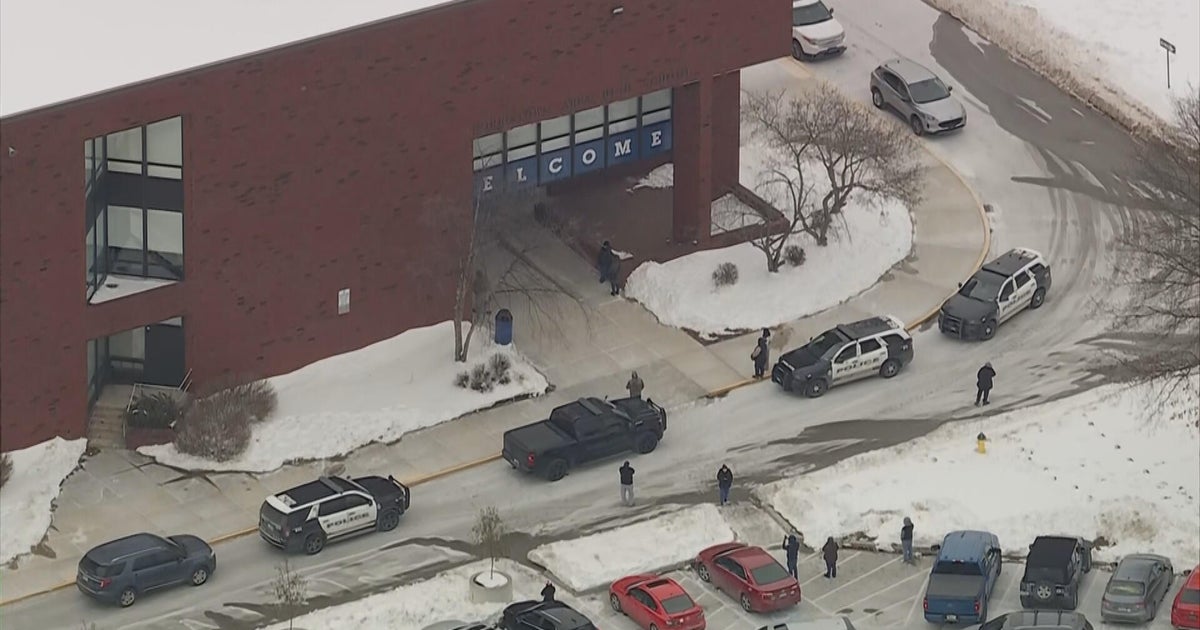College Courses In Md. Change With Security Field
By BLAIR AMES
The Frederick News-Post
FREDERICK, Md. (AP) -- Shortly after 9/11, the FBI selected Mount St. Mary's University as one of seven institutions nationwide where the FBI would focus its recruitment for intelligence analysts.
Ten years later, that relationship remains strong, according to Joe Vince, the Mount's criminal justice program director.
"It's so good, soon I'm going to request that a wing of the (FBI) academy be named after the Mount," he said.
It was the Mount's reputation as having a strong criminal justice field that led Katherine Gonzales to enroll in the program in January.
"It's home to me now," she said. "It has gone excellent."
Gonzales, 48, is studying for a bachelor's degree at the Mount's Frederick campus on Spectrum Drive after graduating from Frederick Community College in 2010 with an associate degree in criminal justice.
She moved to Maryland in 2007 and at the urging of her cousin decided to go back to school. Although she always had an interest in criminal justice, 9/11 did play a role in entering the field, she said.
"It did impact my decision because my safety came into question, especially moving into Maryland," she said.
Gonzales was living in Michigan in 2001, and after graduation she is hoping to land a job with a federal agency, possibly the Department of Homeland Security.
While visiting other schools and their criminal justice programs, a meeting with Vince helped Gonzales make her decision.
"When I left there, I was like, `This is where I want to go,"' she said.
Just last summer Vince said he fielded calls from the New Jersey State Police, National Security Agency, Capitol Police, Supreme Court Police, Secret Service and other law enforcement agencies as well as the FBI regarding Mount graduates applying for jobs at the agencies.
He attributes the success of Mount graduates with federal agencies to the integrity of students and the emphasis the
university places on written and oral communication.
"If you're going to be an analyst, you have to do well in communicating," he said.
Vince served as an agent with the Bureau of Alcohol, Tobacco, Firearms and Explosives for 28 years before joining the Mount's faculty in 2002.
Similar to academia, change in law enforcement takes a long time, Vince said, but 9/11 propelled a change for federal and state agencies to use intelligence and computers to their full potential.
The Mount has followed suit, continually looking at what issues are in the field to structure course work around, even considering an MBA program concentrating on intelligence-led policing, Vince said.
"If you're going to be a leader you have to know how to run an organization," he said.
Starting in spring 2012, the Mount will offer a course on solving complex problems with visual software, using
state-of-the-art software that is also used by state, federal and international agencies. It is the second time the Mount is offering the program, but the first with this software.
Since 9/11, Leonard Latkovski, a senior faculty member at Hood College, has seen a greater interest in Islam and the Muslim world in college academia.
Following that trend, Hood introduced a minor in Middle Eastern studies and then created a major in the same field two years ago.
"When we look and see what's needed for our students to function in the world, we add this major or this minor," Latkovski said. "When we design the curriculum we always try to look and see what is needed, what is happening out in the field."
Hood doesn't offer a major or minor in homeland security, but the college did introduce a security studies concentration about five years ago, Latkovski said.
Hood added the program because of the growth in the security field along with a number of graduates entering the field, he said.
The concentration includes an international security track and a domestic track. Neither is considered a major or minor on campus, but as a concentration offers flexibility for a student studying in any field, whether it be biology, economics, or political science.
"The more broadly educated you are at this level, the better off you are," Latkovski said.
Frederick Community College established the Mid-Atlantic Center for Emergency Management last November in response to increasing demand for qualified emergency managers.
The center offers students an associate degree, certificate program or letters of recognition in emergency management specialty areas.
A three-credit homeland security online course was introduced in the spring 2011 semester as an experimental course.
It was offered in a traditional classroom setting this semester, but was canceled due to low enrollment, according to program manager Kathy Forrest.
"At this time, the best offering platform for the course is distance education, and planning is occurring for the spring 2012 semester offerings," Forrest said in an email.
Emergency management is not a new field, but since 9/11, there is a realization of intentional disasters of a magnitude that did not exist in our consciousness before, Forrest said.
"Before 9/11 we were not aware that such a vehement action could be directed at Americans on U.S. soil," she said.
Sept. 11 changed emergency management education in several ways, Forrest said.
For example, the Federal Emergency Management Agency dedicated resources to produce higher numbers of college graduates to be prepared to respond in all kinds of incidents. Also, FEMA changed its philosophy to think more proactively about outcomes rather than reactively, Forrest said.
"From this we've become more sophisticated in both our educational programs and in our real-world activities," she said.
Information from: The Frederick (Md.) News-Post, http://www.fredericknewspost.com
(Copyright 2011 by The Associated Press. All Rights Reserved.)







